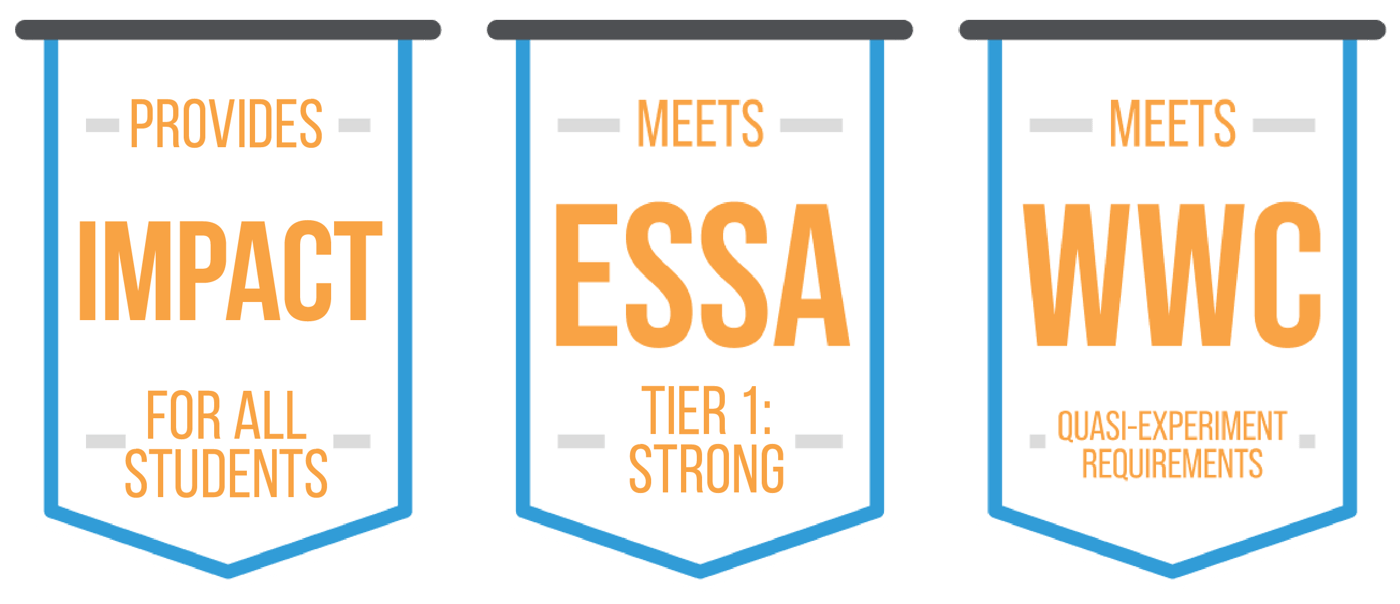Programs
Experience
Services
Educator Topics
ST Math Publications
E-books, Research Papers, & Studies
A complete collection of all downloadable ST Math resources.
A clear and bold heading
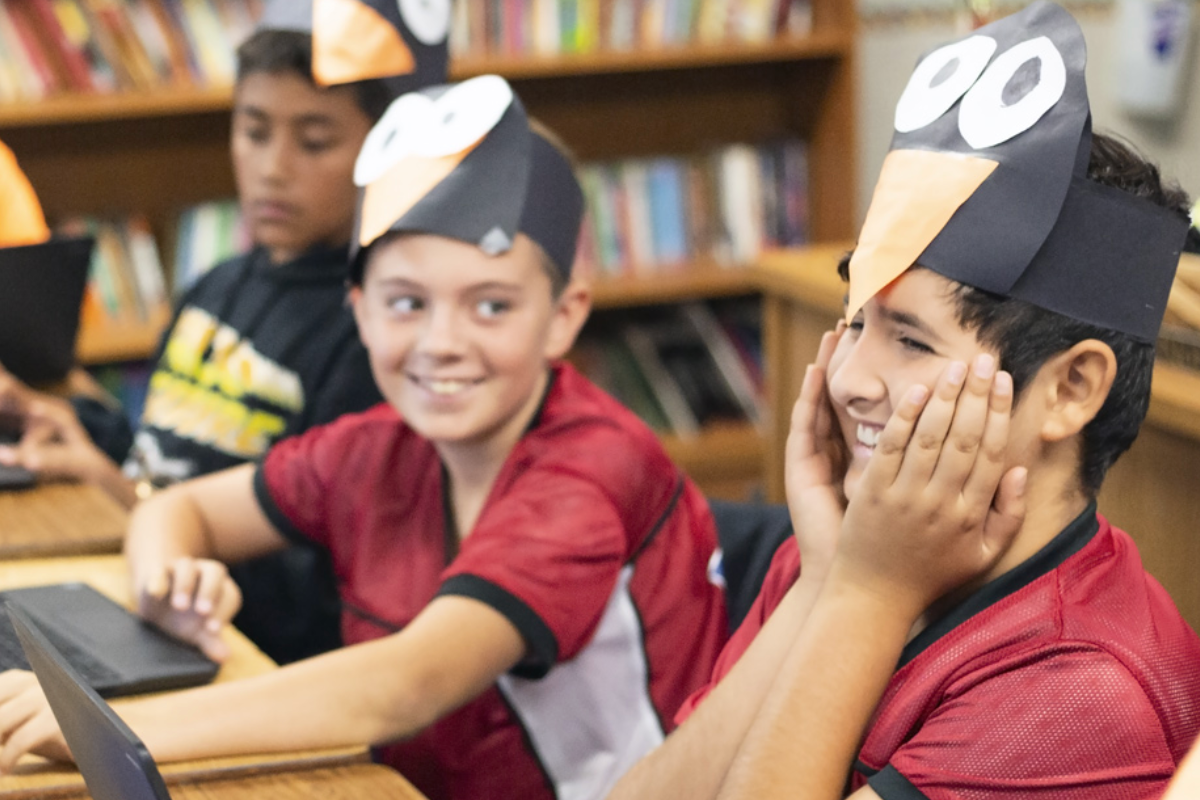
Federal Funding
Federal funding is made available through formula funds and competitive funds.
Formula funds - also called allocated amounts or block grants - are distributed based on a predetermined formula, such as the number of low socio-economic status (SES) students at a given school or district.
Competitive funds - or discretionary grants - are awarded to eligible schools, districts, or other entities who apply by responding to an RFP, or request for proposal. The RFP response must describe in detail the need and purpose for using the funds based on the specifics of the application.
Coronavirus funds - Several coronavirus-related funding opportunities are available for ST Math. These include portions of the CARES Act as well as flexibilities that allow schools or districts to repurpose existing funding.
E-books
Research Papers
Webinars & Podcasts
-

E-book: It Doesn't Add Up
-

E-book: I Think, I Try, I Learn
-
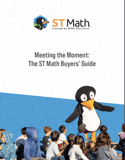
Meeting the Moment: The ST Math Buyers’ Guide
-
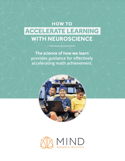
E-book: How to Accelerate Learning with Neuroscience
-
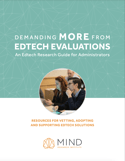
E-book: Demanding More From EdTech Evaluations
-
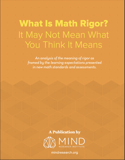
E-book: What Is Math Rigor?
It May Not Mean What You Think It Means -
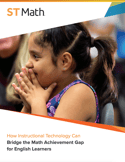
E-book: Bridge the Math Achievement Gap for English Learners
-
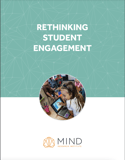
E-book: Rethinking Student Engagement
In the following pages, we'll answer the question of why we're stuck, and offer a way to move forward in our thinking about student engagement. In doing so, we'll also examine why student engagement isn't exactly what we should be striving for, and what we should actually be focusing on in order for students to learn deeply and truly build conceptual understanding.
-
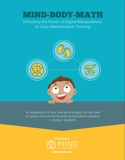
E-book: Digital Manipulative Toolkit
-
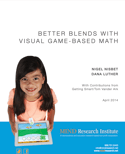
Better Blends With Visual Game-Based Math
Blended learning involves a setting where students spend part of their instructional time with digital curricula and part of their time learning in a brick-and-mortar setting. Students also have some choice in which content they use, how quickly they go through it, where they do it, and for how long. Schools implement blended learning in a variety of ways and using various types of technology and curricula.
-
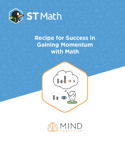
Recipe for Success in Gaining Momentum with Math
Appreciating the landscape of mathematics education today and the challenges of teacher shortages, math confidence in learners and teachers can help administrators build strong learning environments in math classrooms and establish math cultures in buildings. Math intervention solutions may be abundant, but an intervention is a short-term solution to a long-term issue. Utilizing neuroscience research to build the right environment for learning math is the optimal solution for long-term academic success.
-
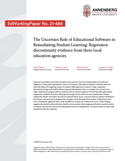
Uncertain Role of Ed Software in Remediating Student Learning
-
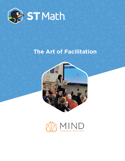
ST Math White Paper: The Art of Facilitation
-
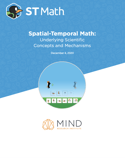
Spatial-Temporal Math:
Underlying Scientific Concepts and Mechanisms -
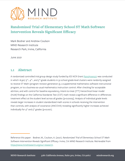
Randomized Trial of Elem. School
ST Math Software Intervention Reveals Significant EfficacyA randomized controlled trial group design study funded by IES NCR Grant R305A090527 was conducted in which 16,307 3rd, 4th, and 5th-grade students in 52 school grade-level clusters were randomly assigned to receive ST Math (program revision generation 3), a supplemental mathematics software instructional program, or to a business-as-usual mathematics instruction control.
-
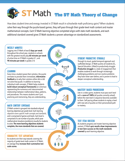
The ST Math Theory of Change
How does student time and energy invested in ST Math result in schoolwide math proficiency gains? When students solve their way through the puzzle-based games, they self-pace through their grade-level math content and master mathematical concepts. Each ST Math learning objective completed aligns with state math standards, and each additional standard covered gives ST Math students a proven advantage on standardized assessments.
Learn More -
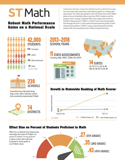
WestEd Study: Robust Math Performance Gains on a National Scale
Independent education research firm WestEd recently published the largest ever cross-state study evaluating a math edtech program on multiple state assessments.
Learn More -
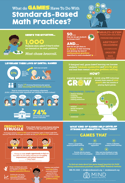
Game-Based Math Infographic
-
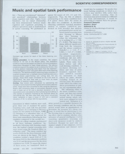
Music and ST
(Spatial Temporal) Performance -
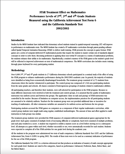
STAR Treatment Effect on Mathematics
-
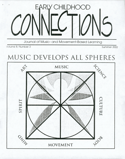
The Music- Math Connection
-
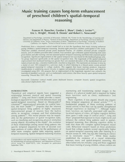
Music Training and Spatial Temporal
-
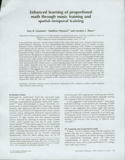
Enhanced Learning Research
-
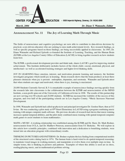
The Joy of Learning Math Through Music
-
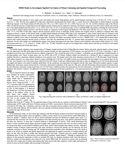
Investigating Spatial Correlates of Music Listening and Spatial-Temporal Processing
-
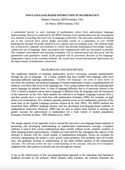
Non-Language-Based Instruction in Mathematics
A substantial barrier to early learning of mathematics arises from undeveloped language understanding. Research conducted by the MIND Institute (www.mindinstitute.net) has investigated new methods of teaching that don't rely on language proficiency.
-
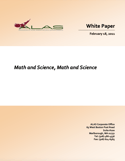
ALAS White Paper: Math and Science
-

EdWeb Webinar: Building the Next Generation of Problem Solvers
Inspire Math Confidence: Building the Next Generation of Problem Solvers
Equip your students with the mathematical problem-solving skills they need to thrive in the future. This edWebinar explores how unique approaches to solving authentic problems can inspire students and empower them to become confident mathematicians.
Discover what makes math problems meaningful and authentic so that students develop critical thinking and problem-solving skills. You also learn how to foster meaningful mathematical discourse that enriches student learning in your classroom.
This recorded edWebinar is of interest to PreK–8 teachers, school leaders, and district leaders. -

EdWeek Webinar: How an Inquiry-Based Approach Transforms Math Learning
How an Inquiry-Based Approach Transforms Math Learning
Transform math learning with an approach that empowers students to become active, engaged learners.
In this webinar, an expert panel will dive into how inquiry-based learning fosters critical thinking, creativity, and collaboration. Discover how to differentiate instruction to meet the diverse needs of every learner and how to create a visual, interactive, and engaging math experience.
This session will provide you with actionable strategies to create a student-centered, inquiry-driven math environment that builds deep conceptual understanding.
-

EdWeb Webinar: Unleashing Math Confidence in Any Classroom
Unleashing Math Confidence in Any Classroom: Empowering Every Teacher
Every teacher has the potential to create “aha” moments in math class, regardless of their math background. In this edWebinar, we explore how learning by doing, visual instruction, and personalized feedback can empower every teacher to foster deep conceptual understanding. Discover how to use formative feedback, engage multilingual learners with visual learning strategies, and spark meaningful math discourse—all while giving students the tools to unlock their full potential in math.
-

EdWeb Webinar: 6 Keys to Math Station Success
6 Keys to Math Station Success
Math workshops and small groups can be powerful tools for increasing student success in the classroom. Come discover how approaching math stations through a visual learning approach can decrease the amount of time you spend preparing and enrich the learning in your classroom.
-

EdWeb Webinar: Harnessing the Joy of Math: Engaging Minds, Enhancing Mastery
Harnessing the Joy of Math: Engaging Minds, Enhancing Mastery
Join this edWebinar to discover the unexpected joy in mathematics. We dive into the psychology of enjoyment and its critical role in math education. This session reveals how true enjoyment, beyond superficial fun, can significantly enhance students’ learning experiences. In this edWebinar,viewers explore strategies for supporting educators in creating math lessons that resonate with students, leading to improved educational outcomes. This edWebinar provides insights into fostering an environment where joy is critical to the learning process, encouraging a schoolwide culture that values and enhances students’ mathematical journeys.
-

EdWeb Webinar: Creative Reasoning: Unlocking the Potential of This Unexplored Promise
Creative Reasoning: Unlocking the Potential of This Unexplored Promise
Are you intrigued by the untapped potential of creative reasoning in educational and professional landscapes? Join us for an insightful edWebinar that dives into why creative reasoning, despite being a powerful learning strategy, isn’t as ubiquitous as we imagine it should be.
This recorded edWebinar promises a rich discussion with expert opinions, research-based evidence, and forward-thinking strategies. Perfect for PreK-12 educators, professionals, and anyone passionate about fostering creativity and innovation—prepare to have your perspective shifted and your approach to problem solving transformed. -

EdWeek Webinar: Equity and Access in Mathematics Education
Equity and Access in Mathematics Education: A Deeper Look
Access in math education is about ensuring all students have the chance to engage with and comprehend mathematical concepts. This webinar will explore the advantages of access in math education, such as heightened engagement, reduced math anxiety, improved learning outcomes, and equity and inclusion. By transforming math into an enjoyable and creative pursuit, we can reach students in all demographics, enabling them to discover the joy of learning math. -

EdWeb Webinar: Engaging Math Problem Solving Through Data-Driven Instruction
Engaging Math Problem Solving Through Data-Driven Instruction
Discover how to transform your math classrooms into hubs of engaging learners. This edWebinar is focused on empowering students to improve their problem-solving skills and foster meaningful mathematical discourse. The presenters share strategies to enhance student achievement through data-driven instruction in an interactive classroom environment, leading to deeper understanding and learning. -

DA ED Talk: Empowering Diverse Students in Mathematics
Empowering Diverse Students in Mathematics: A Pathway to Equity and Excellence
In her quest to foster equity in education, focusing on mathematics, Dr. Kimberly Clark Moss, Coordinator of Educational Technology with Birmingham City Schools (AL), will explore how to level the playing field through engagement, motivation, and support. -

EdWeek Webinar: Understanding And Applying The Science of Learning Math
Understanding And Applying The Science of Learning Math
The science of learning math, an approach that focuses on how students' brains learn, is backed by decades of research and evidence. In this panel discussion, leading math researchers and practitioners will define what the science of learning math is, why it is so effective, and what this looks like when applied in the classroom. -

EdWeek Webinar: Productive Struggle in Math Prepares Students for Success
-
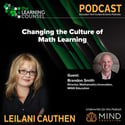
The Learning Counsel Podcast: Changing the Culture of Math Learning
Maybe math learning could be better if it was in sync with the current generation’s culture – that of Generation Alpha. LeiLani interviews Brandon Smith, the Lead Mathematician and Product Director at MIND Education about how learning-by-doing is a key part of a new cultural address for math learning. While Brandon gives specific examples of what can be done, the discussion also turns to equity in learning and development. Brandon also gives key specific points of what the math learning itself needs to involve – an education in math education!
-
National Science Foundation (NSF) Discovery Research PreK-12 (DRK-12)
This NSF competitive funding opportunity seeks to significantly enhance the learning and teaching of science, technology, engineering, mathematics and computer science (STEM) by preK-12 students and teachers, through research and development of STEM education innovations and approaches. Projects in the DRK-12 program build on fundamental research in STEM education and prior research and development efforts that provide theoretical and empirical justification for proposed projects. Projects should result in research-informed and field-tested outcomes and products that inform teaching and learning.
Learn More -
NSF Innovative Technology Experiences for Students and Teachers (ITEST)
ITEST supports projects that engage students in technology-rich experiences that: (1) increase awareness of and interest in STEM and ICT occupations; (2) motivate students to pursue appropriate education pathways to those occupations; and (3) develop STEM-specific disciplinary content knowledge and practices that promote critical thinking, reasoning, and communication skills needed for entering the STEM and ICT workforce of the future.
Learn More -
NSF STEM + Computing K-12 Education (STEM+C)
STEM+C supports research on how students learn to think computationally to solve interdisciplinary problems in science and mathematics. The program supports research and development that builds on evidence-based teacher preparation or professional development activities that enable teachers to provide excellent instruction on the integration of computation and STEM disciplines. Proposals should describe projects that are grounded in prior evidence and theory, are innovative or potentially transformative, and that will generate and build knowledge about the integration of computing and one or more STEM disciplines at the preK-12 level.
Learn More -
NSF Advancing Informal STEM Learning (AISL)
AISL seeks to advance new approaches to and evidence-based understanding of the design and development of STEM learning opportunities for the public in informal environments; provide multiple pathways for broadening access to and engagement in STEM learning experiences; advance innovative research on and assessment of STEM learning in informal environments; and engage the public of all ages in learning STEM in informal environments.
Learn More -
Learning Disabilities Foundation of America
Funds are granted for charitable, scientific, literary or educational purposes or for the identification, ongoing evaluation, education of and services for children and adults with learning disabilities.
Learn More -
National Council of Teachers of Mathematics (NCTM) Mathematics Education Trust (MET)
Fostering Support of Mathematics Learning in Multilingual Classrooms (Pre-K-12)
To increase understanding and expertise in fostering support of multi-language development when teaching mathematics. The proposed project must explicitly support the implementation of equitable and rigorous mathematics teaching that incorporates students' languages and cultures in their learning of mathematics.
Enhancing Student Mathematics Learning Through the Use of Tools and Technology Grants (Pre-K-12)
To encourage the innovative use of technology and other tools to "help teachers and students visualize and concretize mathematics abstractions..." (Principles to Actions). When used appropriately, they can enhance other effective teaching and promote meaningful learning opportunities for students. The focus of the proposal should be on the mathematics being taught and innovative uses of the tools and technology.
Learn More
-
Title III – Language Instruction for English Learners and Immigrant Students
Why choose ST Math for your Title III funds?
Title III ensures language instruction for limited English proficient and immigrant students.
In traditional math education, ELs can miss out on crucial opportunities to understand the meaning behind the math. Because so much of traditional math materials are word-heavy, there are language hurdles EL students must overcome before they can even begin to focus on math concepts. With the ST Math visual instructional program, language barriers are removed, giving ELs access to the same level of math rigor as other students.
Learn More
Something Powerful
Tell The Reader More
The headline and subheader tells us what you're offering, and the form header closes the deal. Over here you can explain why your offer is so great it's worth filling out a form for.
Remember:
- Bullets are great
- For spelling out benefits and
- Turning visitors into leads.
Private Funding
MIND Research Institute and our philanthropic partners are dedicated to ensuring that all students are mathematically equipped to solve the world's most challenging problems.
The ST Math School Grants Program provides funds to our education partners to help cover the cost of the program. We have over $1,000,000 in funding from our partners to help us reach the next 1,000,000 students.
Currently approximately 20% of ST Math schools receive donor funding from MIND’s philanthropic partners.
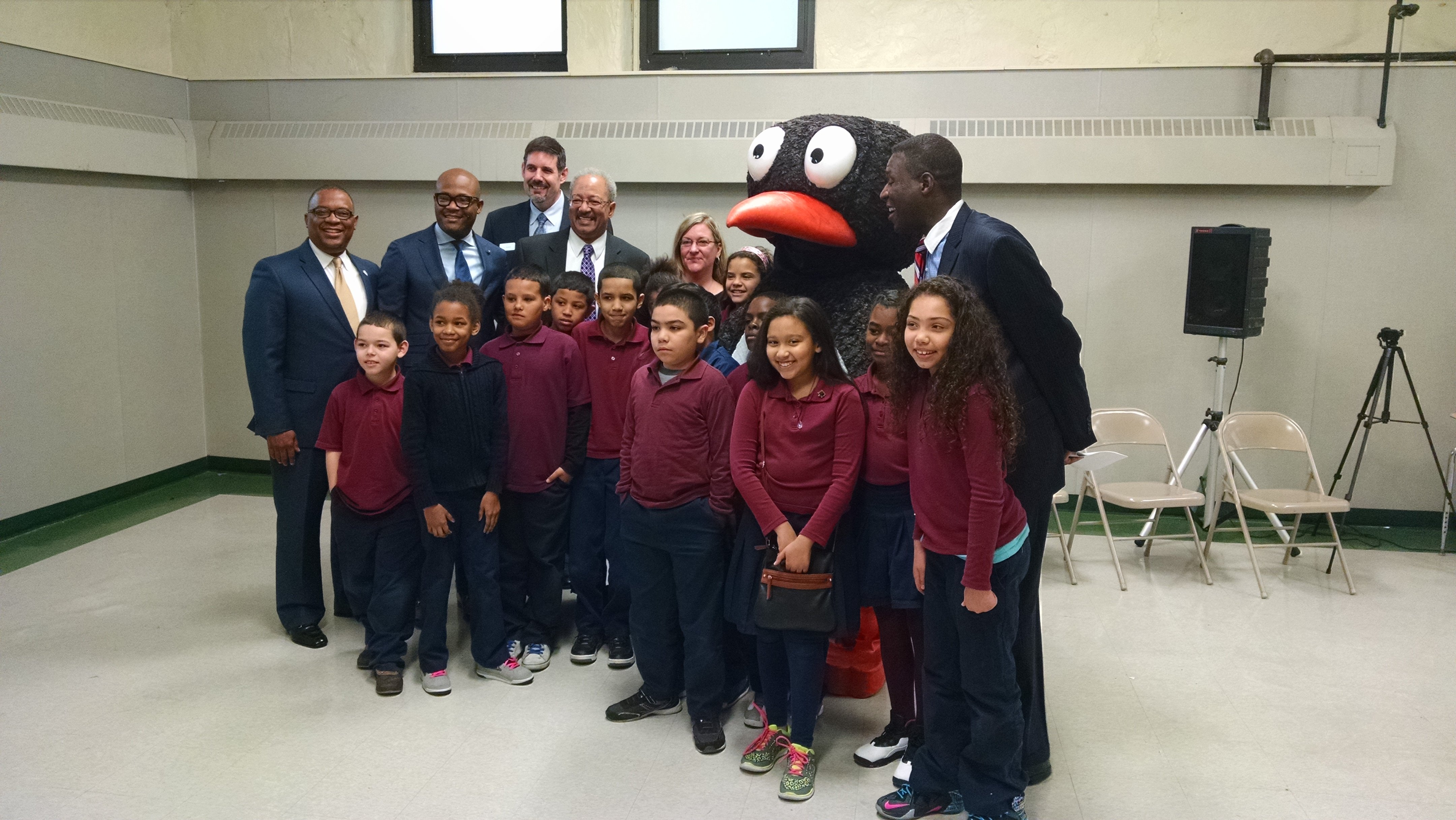
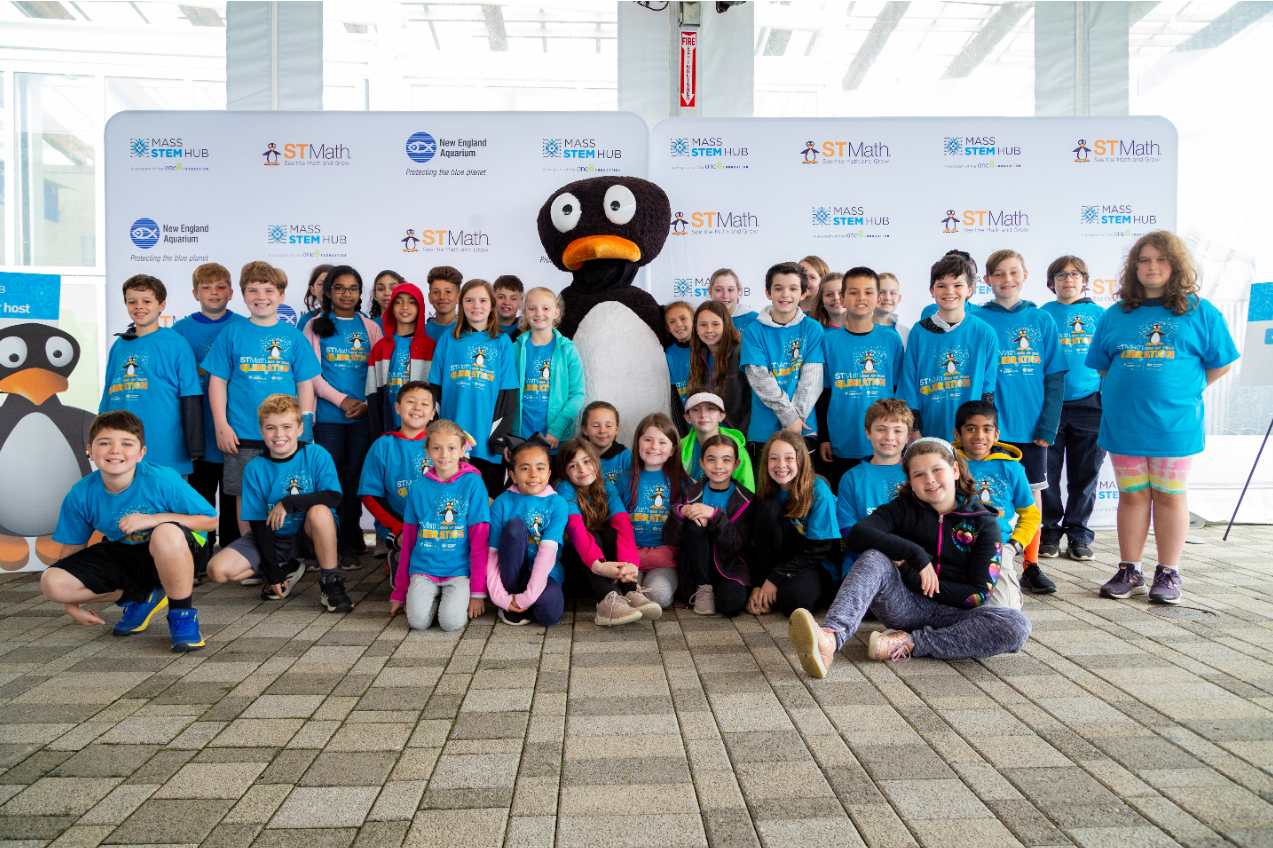
State and Local Funding
A significant amount of education funding is provided at the state and local level through income tax, sales tax, and more. State funding initiatives that approve ST Math include but are not limited to:
The MIND Research Institute team can be of assistance as you navigate the landscape of state and local funds that are available to you. Tell us more about your needs and our team would be pleased to assist.
Get Funding Support

